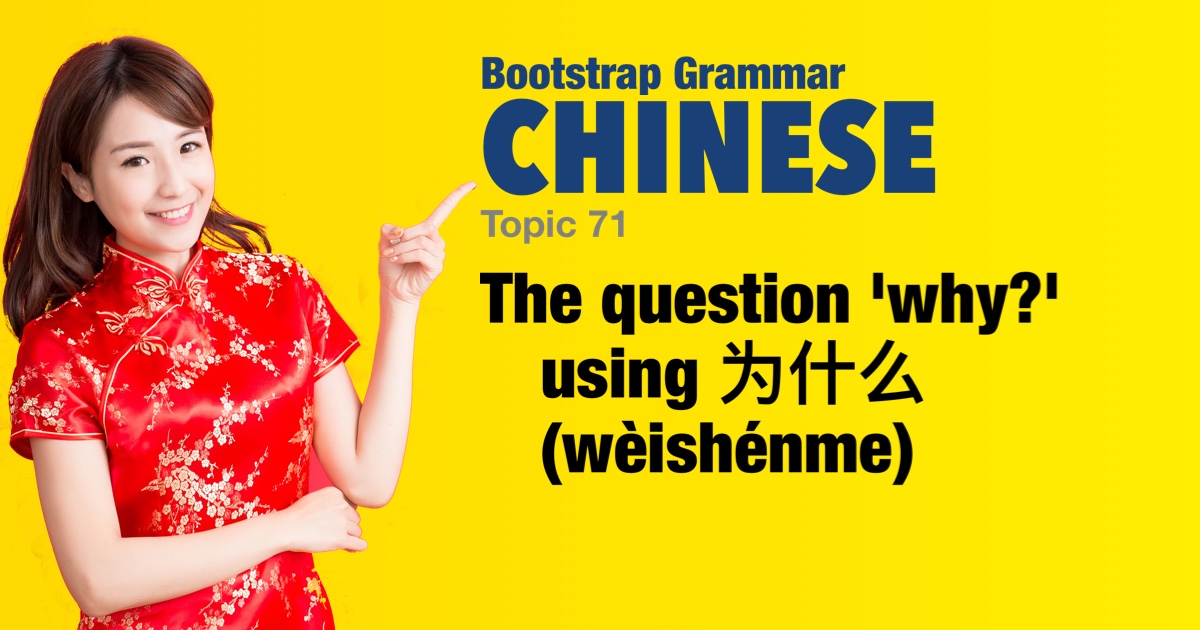Chinese grammar - The question 'why?' using 为什么 (wèishénme) |
|||
|
|||
To ask 'why' in Chinese we use 为什么 (wèishénme). Typically 为什么 comes before the verb. — So The pattern is: [subject] + 为什么 + [verb] + [object]? |
| Examples: | |
|
他为什么不来?
tā wèishénme bù lái? Why doesn't he come? |
|
|
你为什么不吃饭?
nǐ wèishénme bù chīfàn? Why don't you eat? |
|
|
我们为什么不能去海滩?
wǒmen wèishénme bù néng qù hǎitān? Why can't we go to the beach?
|
|
|
你为什么哭?
nǐ wèishénme kū? Why are you crying?
|
|
|
他为什么总是迟到?
tā wèishénme zǒngshì chídào? Why is he always late? |
|
|
为什么鞋子在桌子上?
wèishénme xiézi zài zhuōzi shàng? Why are the shoes on the table? |
|
|
他为什么想要那本书?
tā wèishénme xiǎng yào nà běn shū? Why does he want (to have) that book? |
|
|
你为什么去德国?
nǐ wèishénme qù Déguó? Why do you go to Germany?
|
|
|
他为什么赶去火车站?
tā wèishénme gǎn qù huǒchēzhàn? Why does he hurry to the train station? |
|
|
为什么在这栋楼不可以拍照?
wèishénme zài zhè dònglóu bù kéyǐ pāizhào? Why is taking photos not allowed in this building?
|
|
|
你为什么不想吃饭?
nǐ wèishénme bù xiǎng chīfàn? Why don't you want to eat? |
|
 |
|




